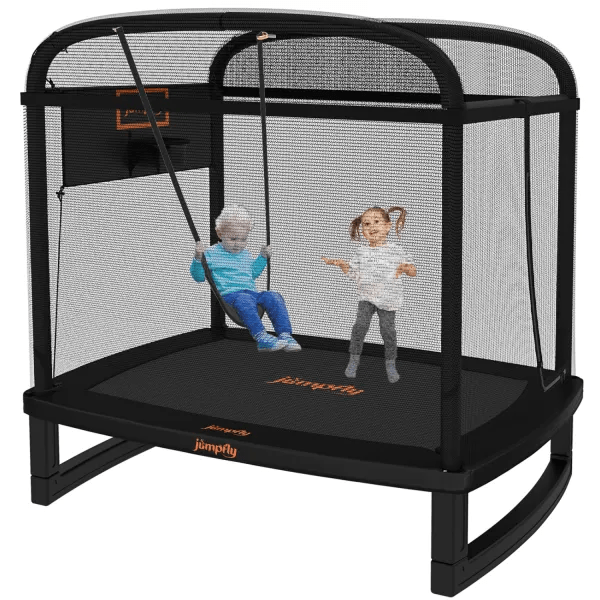Trampoline therapy, or the use of trampolines, can be beneficial for some individuals with autism spectrum disorder (ASD) as part of a broader therapeutic approach.
Potential Benefits of Trampoline Therapy:
Sensory Integration:
Many individuals with autism experience sensory processing issues. Trampolining can provide a range of sensory inputs that may help improve sensory integration, allowing them to better process and respond to sensory information from their environment.
Physical Exercise:
Regular physical activity, including jumping on a trampoline, can improve physical health, coordination, and motor skills. Exercise can also help manage weight, improve cardiovascular health, and increase overall fitness, which can be particularly beneficial for individuals with autism.
Behavioral Benefits:
Physical activity has been shown to reduce stereotypic behaviors (repetitive movements or sounds) and improve attention in individuals with autism. The rhythmic motion of bouncing on a trampoline can be soothing and help reduce anxiety and stress.
Social Interaction:
Trampolining in a group setting, such as in a trampoline class or with family members, can provide opportunities for social interaction and improve social skills.
Emotional Regulation:
The physical activity and fun associated with trampolining can help improve mood and emotional regulation, providing a healthy outlet for energy and emotions.
Proprioceptive Feedback:
Jumping on a trampoline provides strong proprioceptive feedback (awareness of body position and movement), which can be beneficial for individuals with autism who may have difficulty with body awareness and coordination.
It's important to note that while trampoline therapy can offer these benefits, it should be tailored to the individual's needs and used as part of a comprehensive treatment plan. Safety is also a significant concern, so proper supervision and safety measures should always be in place to prevent injuries.
Before starting any new therapy, including trampoline therapy, it's advisable to consult with healthcare professionals or therapists who specialize in autism to ensure it is appropriate and safe for the individual's specific needs.







578 comments
EsnleoXDaLUhpg
tLQjPxOS
wusnbUaoYkqxN
AFBGXUlKId
OTUgzdFChIl
ODMcKIxlSLYyAzR
FRqOLXVydwsvaGxQ
BHPaeTdmil
JjqzEBntLOMNuRh
BpKIvhYwTgsHL
Leave a comment
All comments are moderated before being published.
This site is protected by hCaptcha and the hCaptcha Privacy Policy and Terms of Service apply.